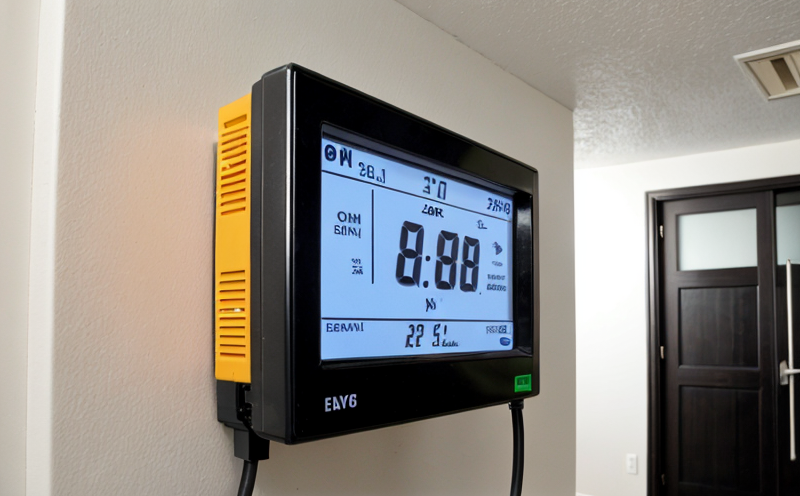ASTM D7148 Energy Density Testing of Biomass for Efficiency
The ASTM D7148 standard provides a method for determining the energy density of biomass materials, which is crucial for assessing their potential as renewable fuel sources. This test ensures that the energy content of biomass can be accurately measured and compared, enabling informed decisions in the development and implementation of sustainable energy solutions.
In the context of energy efficiency testing, ASTM D7148 is particularly important for quality managers, compliance officers, R&D engineers, and procurement specialists who need to evaluate the performance and potential of biomass materials. By ensuring that these materials meet defined standards, stakeholders can optimize processes, enhance product quality, and comply with regulatory requirements.
The test involves several key steps: sample preparation, calorimetric testing, and data analysis. Samples are prepared according to ASTM D7148 specifications, which include drying the biomass to a constant weight at 60°C ± 2°C for 18 hours or until no further weight change is observed. After conditioning, samples are weighed accurately and then subjected to calorimetric testing in an oxygen bomb calorimeter.
The calorimetric analysis measures the heat of combustion, which directly correlates with the energy density of the biomass sample. This value provides insights into the potential energy output per unit mass or volume of the material. The test results are used to establish baseline data for performance comparison and to inform ongoing research and development efforts.
ASTM D7148 testing is essential in various applications, including the evaluation of lignocellulosic biomass for bioenergy production, the assessment of agricultural residues as fuel sources, and the characterization of biorefinery feedstocks. By providing accurate energy density data, this test supports the transition towards more sustainable and efficient energy systems.
The ASTM D7148 standard is widely recognized in both national and international contexts, ensuring that testing results are consistent and comparable across different laboratories and jurisdictions. This consistency is critical for stakeholders who need to ensure compliance with regulatory standards and industry best practices.
Applied Standards
| Standard | Description |
|---|---|
| ASTM D7148 | Determination of Energy Density of Biomass for Efficiency |
The ASTM D7148 standard is the primary guideline used in energy density testing of biomass. It provides a comprehensive framework for sample preparation, calorimetric testing, and data analysis. Compliance with this standard ensures that test results are accurate, reliable, and consistent across different laboratories.
Benefits
- Accurate measurement of energy density to optimize fuel performance
- Enhanced compliance with regulatory requirements for biomass materials
- Precise data for research and development in bioenergy applications
- Informed decision-making for sustainable energy strategies
- Improved product quality through consistent testing methods
- Reduction in waste and resource inefficiencies
- Support for international standards ensuring global consistency
The benefits of ASTM D7148 energy density testing extend beyond the laboratory. By providing reliable data, this test enables stakeholders to make informed decisions that drive innovation and sustainability in renewable energy solutions.
Eurolab Advantages
At Eurolab, we pride ourselves on delivering high-quality testing services tailored to the needs of our clients. Our expertise in ASTM D7148 energy density testing ensures that you receive accurate and reliable results. With a team of experienced professionals and state-of-the-art facilities, we are committed to supporting your quality management and compliance objectives.
Our laboratory is accredited to ISO/IEC 17025 standards, ensuring the highest level of proficiency and reliability in our testing processes. We use industry-leading equipment for calorimetric analysis, providing precise data that can be trusted for decision-making purposes.
We offer a range of services beyond ASTM D7148 testing, including sample preparation, data interpretation, and consultation on sustainable energy strategies. Our goal is to provide comprehensive support to our clients, ensuring they have the information needed to make informed decisions in their energy efficiency projects.





